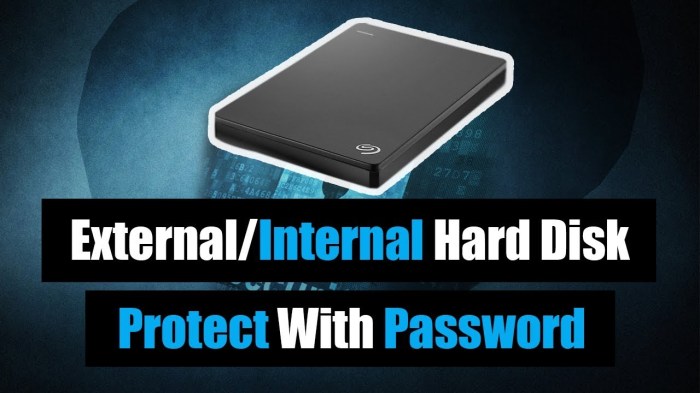In today’s digitally driven world, data security is paramount. Protecting sensitive information stored on your hard drive is crucial, and hard disc encryption software provides a robust solution. This comprehensive guide delves into the intricacies of hard drive encryption, exploring various software options, their functionalities, and the importance of choosing the right solution for your needs. We’ll cover everything from basic concepts to advanced techniques, ensuring you have a clear understanding of how to safeguard your valuable data.
Understanding Hard Disc Encryption
Hard disc encryption is the process of converting readable data into an unreadable format, often referred to as ciphertext. This transformation is achieved using a cryptographic algorithm and a unique encryption key. Only individuals possessing the correct decryption key can access the original data. This prevents unauthorized access, even if the hard drive is physically stolen or compromised.
Types of Hard Disc Encryption
- Full Disk Encryption (FDE): This encrypts the entire hard drive, including the operating system, applications, and user data. It offers the highest level of security.
- File-Level Encryption: This encrypts individual files or folders, allowing selective encryption based on sensitivity. It’s less comprehensive than FDE but offers flexibility.
- Self-Encrypting Drives (SEDs): These drives have built-in encryption capabilities, handling encryption and decryption at the hardware level. They offer a high level of security and convenience.
Encryption Algorithms: The Heart of the System
The effectiveness of hard disc encryption hinges on the strength of the underlying cryptographic algorithm. Popular and robust algorithms include:
- Advanced Encryption Standard (AES): Widely considered the gold standard, AES offers strong security with various key lengths (128-bit, 192-bit, and 256-bit).
- Triple DES (3DES): While still used, 3DES is gradually being replaced by AES due to its slower performance.
Choosing software with a strong, well-vetted algorithm is crucial for ensuring robust data protection. The key length directly impacts the security level; longer key lengths are more resistant to brute-force attacks.
Choosing the Right Hard Disc Encryption Software
Selecting the appropriate hard disc encryption software depends on several factors, including your operating system, security requirements, and budget. Consider the following aspects:
Operating System Compatibility
Ensure the software is compatible with your operating system (Windows, macOS, Linux). Some software offers cross-platform support, while others are platform-specific.
Ease of Use
While security is paramount, usability matters too. Choose software with a user-friendly interface, making encryption and decryption straightforward. Look for intuitive features and clear instructions.
Performance Impact
Encryption and decryption processes consume system resources. While modern algorithms are optimized for performance, some software may impact system speed. Consider the potential performance overhead, especially on older or less powerful systems.
Key Management
Secure key management is critical. The software should offer robust mechanisms for generating, storing, and recovering encryption keys. Losing your key renders your data inaccessible.
Cost, Hard disc encryption software
Hard disc encryption software ranges from free open-source options to commercial products with advanced features. Weigh the cost against your security needs and budget.
Popular Hard Disc Encryption Software Options
Several reputable software options cater to different needs and preferences:

Source: weebly.com
- VeraCrypt: A free, open-source, and widely respected FDE solution available for Windows, macOS, and Linux. It’s known for its strong security and flexibility.
- BitLocker (Windows): Built into Windows, BitLocker provides FDE for Windows systems. It’s a convenient option for Windows users, offering a good balance of security and ease of use.
- FileVault (macOS): Apple’s built-in FDE solution for macOS, providing a user-friendly way to encrypt Mac hard drives.
- LUKS (Linux Unified Key Setup): A widely used standard for disk encryption on Linux systems. It’s often integrated into various Linux distributions.
This list isn’t exhaustive, and many other commercial and open-source options exist. Research thoroughly before selecting software.
Security Best Practices
Even with robust encryption software, implementing best practices is crucial for maximizing data security:
- Strong Passwords: Use long, complex, and unique passwords for your encryption keys. Avoid easily guessable passwords.
- Regular Updates: Keep your encryption software updated to benefit from security patches and bug fixes.
- Two-Factor Authentication (2FA): If available, enable 2FA for an extra layer of security.
- Secure Key Storage: Protect your encryption keys diligently. Avoid storing them in easily accessible locations.
- Regular Backups: While encryption protects against unauthorized access, data loss can still occur due to hardware failure. Regular backups are crucial.
Frequently Asked Questions (FAQ)
- Q: Is hard disc encryption necessary? A: The need for hard disc encryption depends on the sensitivity of your data. If you handle confidential information, encryption is highly recommended.
- Q: How long does it take to encrypt a hard drive? A: The encryption time depends on the drive size, encryption algorithm, and system performance. It can range from minutes to hours.
- Q: What happens if I forget my encryption key? A: Losing your encryption key renders your data permanently inaccessible. Choose a key management strategy that minimizes this risk.
- Q: Can I encrypt an external hard drive? A: Yes, most hard disc encryption software supports encrypting external drives.
- Q: Is hard disc encryption sufficient for complete data security? A: While encryption is a vital component, it’s not a standalone solution. Combine it with other security measures like strong passwords and regular backups.
Conclusion
Hard disc encryption is a critical aspect of data security. By understanding the different types of encryption, choosing appropriate software, and following best practices, you can significantly enhance the protection of your sensitive information. Remember to research thoroughly and select a solution that aligns with your specific needs and technical expertise.
References: Hard Disc Encryption Software
Call to Action
Protect your valuable data today! Download and install reliable hard disc encryption software and take control of your digital security.
Essential Questionnaire
What happens if I lose my encryption key?
Losing your encryption key renders your data irretrievably inaccessible. It’s crucial to securely store your key and consider creating a backup.
Is hard disc encryption slow?

Source: windowsreport.com
Modern encryption algorithms are optimized for speed, and performance impact is generally minimal, although some slowdown might be noticeable depending on the hardware and encryption method used.
Can I encrypt only specific files or folders?
Yes, some software allows for selective encryption, while others encrypt the entire hard drive. The choice depends on your security requirements and preference.
Is full-disk encryption better than file-level encryption?
Full-disk encryption offers more comprehensive protection, as it secures all data on the drive. File-level encryption is useful for selectively protecting sensitive files but leaves other data vulnerable.
